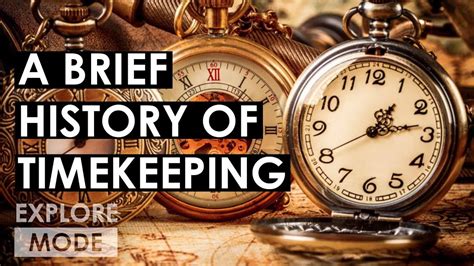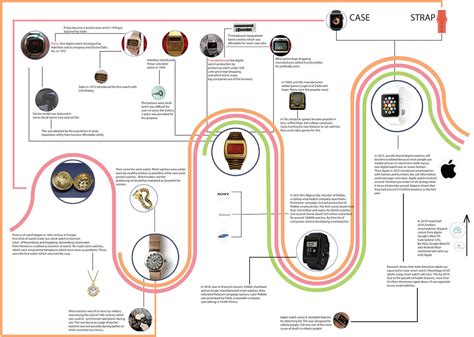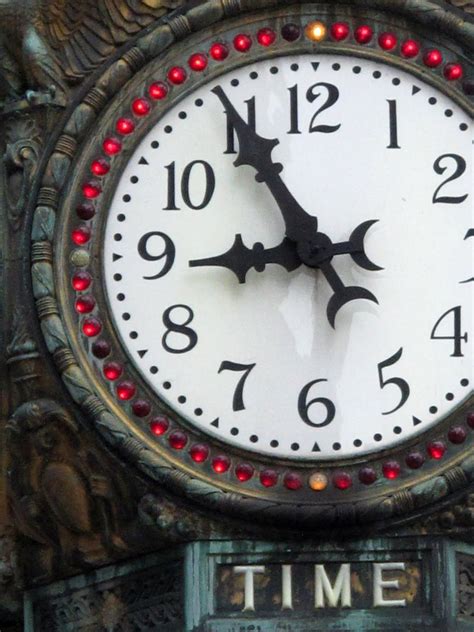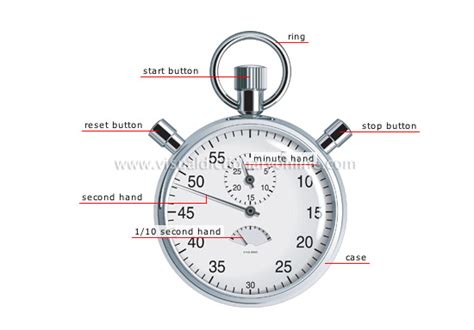Explore the history, cultural significance, and modern innovations of timekeeping in Dallas. Discover the impact of time zones and future trends in Dallas timekeeping.Have you ever stopped to think about the significance of time in the bustling city of Dallas? From the historic timepieces that adorn its streets to the modern technologies that keep us punctual, timekeeping has played a crucial role in the development and culture of this vibrant city. In this blog post, we will delve into the rich history of timekeeping in Dallas, exploring the evolution of timepieces and the impact of time zones on the city. We will also take a closer look at some notable clocks and watches in Dallas, as well as the innovations that have shaped Dallas timekeeping over the years. Additionally, we will discuss the science of measuring time, the cultural significance of time, and the future trends in timekeeping technologies in the city. Join us as we unravel the fascinating world of Dallas timekeeping and discover the ways in which it has influenced the city’s past, present, and future.
Introduction to Dallas Time

Dallas, a bustling city in the state of Texas, is known for its rich history, diverse culture, and vibrant community. One of the fascinating aspects of Dallas is its unique relationship with time. From the early days of settlement to the modern era, timekeeping has played a crucial role in shaping the city’s identity and development.
The history of timekeeping in Dallas dates back to the early days of the city’s establishment. As pioneers and settlers began to make their homes in the area, the need for accurate timekeeping became increasingly important. Whether it was for coordinating agricultural activities, scheduling community events, or simply keeping track of the passing hours, time became an essential part of everyday life in Dallas.
Over the years, the evolution of timepieces has played a significant role in shaping Dallas’s relationship with time. From traditional mechanical clocks to modern digital watches, the city has embraced a wide range of timekeeping technologies. Notable clocks and watches have become iconic symbols of Dallas, each with its own unique story and significance.
As a city located in the central time zone, Dallas has been deeply impacted by the concept of time zones. The standardization of time across different regions has influenced everything from business operations to daily routines, and has shaped the way Dallas residents interact with time on a daily basis.
As we delve into the world of Dallas timekeeping, we will explore the cultural significance of time in the city, the science of measuring time, and the innovative technologies that are shaping the future of timekeeping in Dallas.
History of Timekeeping in Dallas

Dallas has a rich history of timekeeping, dating back to the early days of the city’s founding. Early settlers relied on primitive methods of time measurement, such as sundials and hourglasses, to keep track of the passing hours. As the city grew and developed, so too did the need for more accurate timekeeping devices.
With the arrival of the railroad in the 19th century, the need for precise timekeeping became even more crucial. This led to the establishment of standard time zones and the widespread adoption of synchronized timepieces. Dallas played a significant role in this timekeeping revolution, with the city becoming a hub for the production and distribution of clocks and watches.
The evolution of timekeeping technology continued into the 20th century, with the introduction of electric and quartz-powered clocks. Dallas was at the forefront of these innovations, with several local companies leading the way in the development of advanced timekeeping devices.
Today, Dallas continues to be a center for timekeeping research and development, with companies and institutions actively engaged in the creation of cutting-edge timekeeping technologies. From atomic clocks to smartwatches, the city remains at the forefront of the industry, driving forward the future of timekeeping.
Evolution of Timepieces

Evolution of Timepieces
Timekeeping has been an essential part of human civilization for centuries, and the evolution of timepieces has been a fascinating journey. From sundials and hourglasses to modern digital watches, the concept of measuring time has evolved significantly over the years.
Early timepieces like sundials and water clocks relied on the sun’s position and the flow of water to indicate the time. These rudimentary devices paved the way for the development of mechanical clocks and pocket watches in the medieval period.
With the advent of technology, the evolution of timepieces took a giant leap forward. The invention of the quartz crystal in the 20th century revolutionized timekeeping, leading to the production of accurate and affordable timepieces for the masses.
The introduction of digital watches in the 1970s marked another significant milestone in the evolution of timepieces. These watches not only displayed time but also incorporated additional features such as alarms, stopwatches, and calculators, making them incredibly popular among consumers.
Today, the evolution of timepieces continues with the rise of smartwatches and wearable technology. These devices not only tell time but also offer a wide range of features such as fitness tracking, notifications, and even mobile payments.
Impact of Time Zones on Dallas

One of the significant aspects of timekeeping in Dallas is the impact of time zones on the city. With the majority of the state of Texas falling within the Central Time Zone, Dallas follows the same time zone as most of the neighboring areas. This standardization of time across the region has played a crucial role in ensuring smooth functioning of businesses, transportation, and daily activities.
The utilization of time zones has a profound effect on various sectors in Dallas. From scheduling of international business meetings to coordinating public transportation services, the adherence to a specific time zone framework allows for effective time management and coordination.
In addition to the practical implications, time zone adherence also contributes to the cultural fabric of the city. From the timing of events and performances to the scheduling of local festivities, the influence of time zones shapes the social dynamics of Dallas.
Furthermore, the impact of time zones on Dallas can also be seen in the global context, as the synchronization of time facilitates seamless communication and coordination with international partners and counterparts. The consistent alignment of time zones enables businesses and organizations in Dallas to efficiently engage with their global network, contributing to the city’s status as a hub for international trade and commerce.
Notable Clocks and Watches in Dallas

When it comes to the history of timekeeping, Dallas has its fair share of notable clocks and watches that have made an impact on the city’s culture and society. These timepieces not only serve the practical purpose of telling time, but they also hold historical and artistic significance that make them stand out.
One notable clock in Dallas is the Neiman Marcus Clock, a historical landmark located in downtown Dallas. This iconic clock has been a symbol of luxury and elegance since its installation in 1947, and it continues to attract tourists and locals alike with its ornate design and timeless appeal.
Another noteworthy timepiece in Dallas is the Rolex Building Clock, a giant clock adorning the top of the Rolex building in NorthPark Center. This iconic clock not only serves as a functional timekeeping device, but it also represents the city’s love for luxury and high-quality craftsmanship.
In addition to clocks, there are also notable watches associated with the city of Dallas. One such example is the Patek Philippe Grandmaster Chime, a luxury timepiece that has gained recognition for its intricate design and technical sophistication. Owned by prominent figures in Dallas, this watch serves as a symbol of wealth and status within the community.
Overall, the notable clocks and watches in Dallas reflect the city’s rich history and cultural significance, showcasing the importance of timekeeping in shaping the identity of the city.
Dallas Timekeeping Innovations

Dallas Timekeeping Innovations
Timekeeping innovations in Dallas have played a significant role in shaping the city’s development and progress. From the early days of sundials and hourglasses to the precision of atomic clocks, Dallas has been at the forefront of timekeeping technology.
One notable innovation in Dallas timekeeping is the development of the first electric clock in the late 19th century. This technological breakthrough revolutionized the way time was kept and displayed, paving the way for future advancements in timekeeping.
Another key innovation in Dallas timekeeping is the integration of GPS technology into clocks and watches. This has allowed for unprecedented accuracy and synchronization of timepieces, ensuring that residents and businesses in Dallas are always on time and in tune with the global time standard.
Furthermore, Dallas has been a pioneer in the development of smartwatches and wearable timekeeping devices. These innovations have not only made timekeeping more convenient and accessible, but have also opened up new possibilities for integrating time management with other aspects of daily life.
In conclusion, Dallas timekeeping innovations have played a crucial role in shaping the city’s identity and progress. From the invention of the first electric clock to the integration of GPS technology and the development of smartwatches, Dallas continues to lead the way in redefining how we measure and manage time.
The Science of Measuring Time in Dallas

The science of measuring time in Dallas is a fascinating subject that has evolved over centuries. From the ancient sundials to the modern atomic clocks, the way we measure time has undergone significant changes. In Dallas, as in many other cities, the science of timekeeping has played a crucial role in the development of the society.
One of the earliest methods of measuring time in Dallas was through the use of sundials. These simple devices used the position of the sun to determine the time of day. As technology advanced, mechanical clocks and watches became the norm, with precision and accuracy being the focus of continued innovation.
With the advent of the Industrial Revolution, Dallas saw a significant boom in the production of timepieces. The city became known for its clockmakers and watch manufacturers, with many contributing to the advancements in the science of timekeeping. In the late 19th century, the introduction of standard time zones further revolutionized the way time was measured, leading to the establishment of the Coordinated Universal Time (UTC).
In the modern era, Dallas has been at the forefront of timekeeping technologies, particularly in the field of atomic clocks. These highly accurate instruments are used in various scientific and technological applications, ranging from global navigation systems to telecommunications. The study of time and its measurement continues to be a vital area of research and innovation in Dallas, with a focus on developing even more precise and reliable timekeeping devices.
Cultural Significance of Time in Dallas

The cultural significance of time in Dallas is deeply rooted in the city’s rich history and diverse communities. From the early days of the indigenous tribes who inhabited the area to the modern era of globalization, time has played a pivotal role in shaping the cultural fabric of Dallas. The concept of time has been intertwined with the city’s traditions, rituals, and customs, influencing everything from daily routines to major celebrations and events.
Throughout history, time has been a symbol of status and prestige in Dallas, with the city’s elite showcasing their wealth and power through grand timepieces and luxurious watches. This cultural emphasis on time has also led to the proliferation of clock towers and public timepieces that serve as landmarks and gathering points for the community. These iconic timepieces not only serve a practical purpose but also hold deep cultural significance for the people of Dallas.
The cultural significance of time in Dallas is also evident in the city’s vibrant arts and entertainment scene. From timeless works of art that capture the essence of Dallas’ history to contemporary performances that explore the concept of time in a modern context, the city’s creative community has continually drawn inspiration from the ever-present influence of time. Time has become a muse for artists, musicians, and performers, inspiring thought-provoking works that reflect the city’s cultural identity.
Furthermore, the diversity of Dallas’ population has brought forth a myriad of cultural traditions and perspectives on time. From the influence of various immigrant communities to the legacy of indigenous cultures, the concept of time is celebrated and honored in a multitude of ways throughout the city. This rich tapestry of cultural expressions has contributed to Dallas’ unique and dynamic approach to time, making it a truly special and multi-faceted aspect of the city’s cultural landscape.
In conclusion, the cultural significance of time in Dallas is a reflection of the city’s history, traditions, and the diverse communities that call it home. From the symbols of status and prestige to the artistic expressions and diverse perspectives, time has played an integral role in shaping the cultural essence of Dallas. As the city continues to evolve and grow, the significance of time will undoubtedly remain a cornerstone of its cultural identity.
Modern Timekeeping Technologies in Dallas

Modern timekeeping technologies in Dallas have revolutionized the way we measure and keep track of time. From atomic clocks to smartwatches, the advancements in timekeeping technology continue to shape the way we interact with time in our daily lives.
The use of atomic clocks in Dallas has contributed to more precise and accurate timekeeping. These clocks rely on the vibrations of atoms to measure time, making them incredibly reliable and consistent. This technology has been instrumental in various industries, including telecommunications, banking, and transportation, where precise timekeeping is crucial.
Another significant advancement in timekeeping technology is the development of smartwatches and wearable devices. These devices not only tell the time but also offer a wide range of features such as fitness tracking, communication, and navigation. The integration of these technologies has made timekeeping more accessible and convenient for individuals on the go.
Furthermore, the use of GPS technology has greatly impacted timekeeping in Dallas. GPS satellites transmit signals that can be used to accurately determine the time and location anywhere on Earth. This technology has become essential in various applications, including navigation, emergency services, and precision timing.
Internet-connected clocks and devices have also become prevalent in modern timekeeping. These devices can automatically synchronize with atomic clocks through internet connections, ensuring that they are always displaying the accurate time. This technology has simplified timekeeping for both individuals and organizations, eliminating the need for manual adjustments.
Future Trends in Dallas Timekeeping

As technology continues to advance at a rapid pace, the future of timekeeping in Dallas is set to undergo some exciting changes. One of the major future trends in Dallas timekeeping is the adoption of smart watches and wearable technology that will not only tell time but also offer a wide range of features such as fitness tracking, communication, and even mobile payments. These watches will seamlessly integrate into our daily lives, providing us with a convenient way to manage our time.
Additionally, the development of atomic clocks will play a crucial role in the future of timekeeping in Dallas. These highly accurate clocks rely on the vibrations of atoms to keep time, and they are expected to become more prevalent, especially in scientific and technological fields where precise timekeeping is essential.
Another significant trend on the horizon is the use of artificial intelligence in timekeeping. AI-powered clocks and devices will be able to analyze data and make adjustments based on our routines and preferences, ensuring that we always stay on schedule and make the most of our time.
Furthermore, the integration of internet-connected devices into our daily lives will have a profound impact on how time is kept and managed. From smart home systems that automatically adjust the time based on our location to interconnected devices that sync time seamlessly, the future of timekeeping in Dallas will be closely tied to the internet of things.
In conclusion, the future of timekeeping in Dallas looks incredibly promising, with advancements in technology and innovation set to revolutionize the way we perceive and manage time. With the advent of smart watches, atomic clocks, artificial intelligence, and internet-connected devices, the way we keep time is poised to undergo a significant transformation in the years to come.
Frequently Asked Questions

What time zone is Dallas in?
Dallas is in the Central Time Zone (CT)
Does Dallas observe daylight saving time?
Yes, Dallas observes daylight saving time, so clocks are set forward by 1 hour in the spring and set back by 1 hour in the fall.
What are some popular attractions in Dallas?
Popular attractions in Dallas include the The Sixth Floor Museum at Dealy Plaza, Dallas Arboretum and Botanical Garden, Dallas World Aquarium, and the Dallas Zoo.
What is the average temperature in Dallas?
The average temperature in Dallas ranges from around 55°F (13°C) in the winter to about 96°F (36°C) in the summer.
Is Dallas a good city for food lovers?
Yes, Dallas is a great city for food lovers, with a diverse culinary scene including Tex-Mex, barbecue, and fine dining options.
What are the best times to visit Dallas?
The best times to visit Dallas are in the spring (March to May) and autumn (September to November) when the weather is pleasant and there are many outdoor events and festivals.
What are some nearby cities worth visiting from Dallas?
Some nearby cities worth visiting from Dallas include Fort Worth, Arlington, and Plano, each offering its own unique attractions and experiences.

